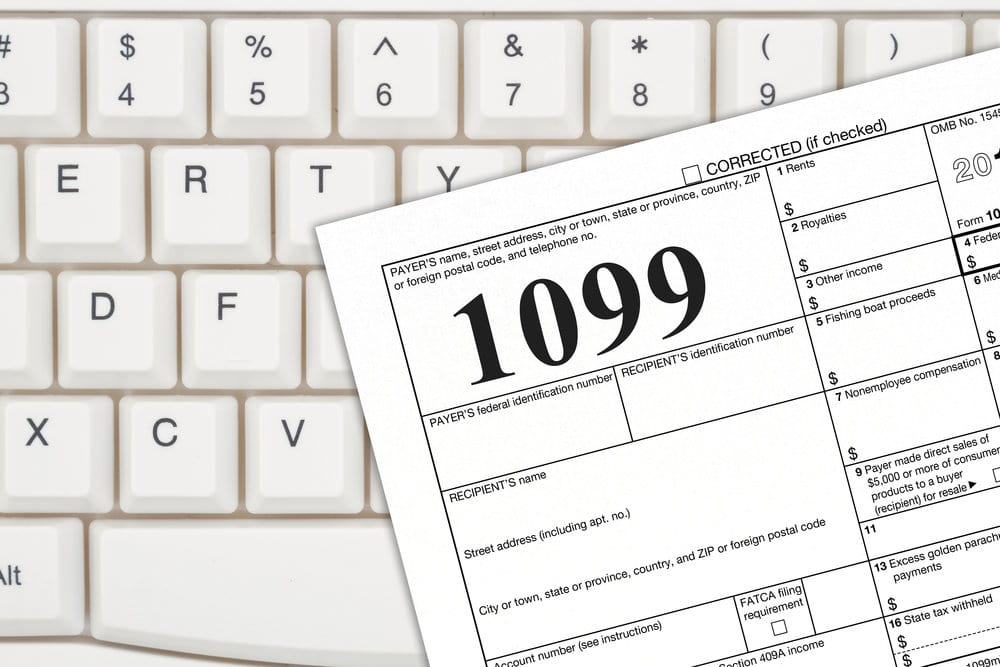Are you an independent worker looking to save some cash on your taxes? Well, you’re in luck! One of the biggest perks of being your boss is taking advantage of 1099 tax write-offs.
In this article, we will break down exactly what 1099 write-offs are, what expenses can be written off, and how you can document and maximize your deductions. So, grab your favorite beverage, and let’s dive into the world of 1099 tax write-offs and learn how to save come tax season.
What is a 1099 Write-Off?
A 1099 write-off refers to expenses that can be deducted from taxes by self-employed individuals or independent contractors to reduce their taxable income. These write-offs can be claimed if the expenses reported on a 1099 form, such as a 1099-MISC, are ordinary and necessary for your business.
To claim a 1099 write-off, you need to file a Schedule C, which is used to report business income and expenses, along with your tax return. These write-offs will reduce the net profit reported on Schedule C, lowering the taxable income on your 1040 tax return.
One important thing to note: Keep track of your yearly expenses with a system that works for you. Whether it’s a trusty spreadsheet, an expense tracking app, or that shoebox filled with receipts (hey, no judgment here), ensure you have all the documentation you need come tax season.
Types of Expenses that can be Written Off
Now that you know what a 1099 write-off is, let’s explore the different types of expenses that can be written off to help you keep more of your hard-earned money. They include the following:
Business Supplies and Equipment
Does your work require you to get shiny new office supplies or equipment? Well, good news! You can deduct these expenses, whether pens, paper, laptops, or that ergonomic chair of your dreams, from your taxes. So, splurge a little (within reason) and make your workspace top-notch!
Home Office Expenses
Working from the comfort of home? You’re not alone! Many independent workers are rocking their pajamas while kickin’ some serious business butt. And guess what? You can write off some of your rent or mortgage, utilities, internet, and even home repairs and maintenance. Just make sure you have a dedicated area used exclusively for work. So, crank up that home office productivity, and reap the rewards!
Travel Expenses
Who said work and play can’t mix? If you’re traveling for business purposes, you’re in luck! Plane tickets, hotel stays, car rentals, and even meals during your business trips can all be written off. Just keep those receipts and track your mileage if you’re driving. So, pack your bags — it’s time to turn those destination dreams into tax-saving realities!
Vehicle Expenses
Calling all road warriors! You can deduct a portion of your vehicle expenses if you use your vehicle for work-related purposes. That includes gas, insurance, repairs, and even depreciation. Just be prepared to track your mileage and keep records of your expenses. Just think of it this way, every smooth ride on the open road is like a gentle pat on your wallet.
Contract Labor Codes
Sometimes you need extra help, and that’s where contract labor comes in. If you hire freelancers, assistants, or even cleaners for your business, you can write off those expenses too! Remember to keep records of your payments, contracts, and any necessary forms like Form 1099-MISC. So, delegate wisely and save some dough!
Professional Fees
Are you seeking professional services like legal advice, accounting help, or a marketing consultant? Well, these payments can also be written off! Keep those receipts, invoices, and statements to prove you put the “pro” in professional services. Don’t worry; your wallet will thank you for being so professional.
Remember, these are just a few examples of the expenses you can write off as self-employed. So, take a moment to think about your specific line of work and the expenses you incur. You might be surprised by the deductions you’re eligible for!
Documentation and Record-Keeping
After learning the types of expenses that can be written off, let’s s talk about everyone’s favorite part of taxes – documentation, and record-keeping! I know, it sounds about as exciting as watching paint dry, but trust me, it’s crucial.
Without proper documentation, your 1099 write-offs could be just a figment of your deduction dreams. So, let’s break down the key aspects of documentation and record-keeping that you need to know.
Save those Receipts
First and foremost, keep every single receipt related to your business expenses. That means that coffee you bought during a meeting with a client, those office supplies you picked up at Staples, and even that parking ticket you got during a business-related errand. Scrunch up that receipt, and keep it somewhere safe.
Keep Detailed Records
As we mentioned, you must have detailed records of the expenses you incurred to claim any 1099 write-offs. This means keeping track of each expense’s date, amount, purpose, and description. Be specific and transparent, so your records can easily support any deductions you claim.
Use an Expense Tracking System
Keeping track of all your expenses can be time-consuming, but luckily, plenty of tools are out there to help you! Many apps and software programs, like QuickBooks, FreshBooks, and Expensify, can help you automate and streamline your expense-tracking process. So, leave the paper receipts behind and opt for that digital life.
Utilize Separate Accounts
It’s important to keep business expenses separate from personal expenses! Set up a different bank account or credit card solely for business use. This not only helps you track your expenses more easily but also helps you avoid confusion come tax season.
Understand IRS Rules
The IRS has specific rules around documentation and record-keeping regarding deductions. So, take some time to familiarize yourself with the regulations and requirements. Better safe than sorry, right?
By keeping detailed records and documentation of your business expenses, you can rest easy knowing that you’re doing everything by the book. Plus, you’ll be able to maximize your 1099 write-offs and ultimately save more money come tax season. It’s a win-win!
Tips for Maximizing 1099 Write-Offs
It’s time to take your 1099 write-offs to the next level! Here are some top tips and tricks to help you maximize those deductions and keep more of your hard-earned money in your pocket:
Go the Extra Mile on Documentation
Regarding documentation, a little extra effort can go a long way. Make sure your records are detailed and provide a clear explanation of the business purpose for each expense. The more specific and transparent you are, the smoother and easier it will be to prove your deductions if faced with an audit. So, dot those i’s and cross those t’s!
Be Aware of Thresholds and Limits
While you want to maximize your write-offs, knowing any thresholds and limits set by the IRS is important. For example, there are certain limitations on deductions for meals and entertainment expenses. Stay informed and ensure your deductions fall within the allowed limits to avoid any surprises later.
Time it Right
Timing is everything, even in the world of 1099 write-offs! Be strategic about when you make your business-related purchases and incur expenses. If possible, try to time them towards the end of the year, as any expenses made before the end of the tax year can be deducted from that year’s tax return. It’s a little tax magic that can help maximize your deductions.
Bottomline
Taking advantage of those 1099 write-offs, you can put money back in your pocket and keep more of your hard-earned cash where it belongs – with you.
So roll up your sleeves, arm yourself with knowledge, and closely examine your business-related expenses. Remember, every coffee meeting, every office supply run, and every business-related parking ticket can be part of your tax-saving strategy.
Don’t forget about working hand-in-hand with a tax professional. Taxes can be a tricky business. That’s why consulting with a tax expert will help you navigate the intricate world of taxes.
With a little effort and proper guidance, you’ll be well on your way to working those deductions, letting that extra cash flow, and eventually, financial triumph.



